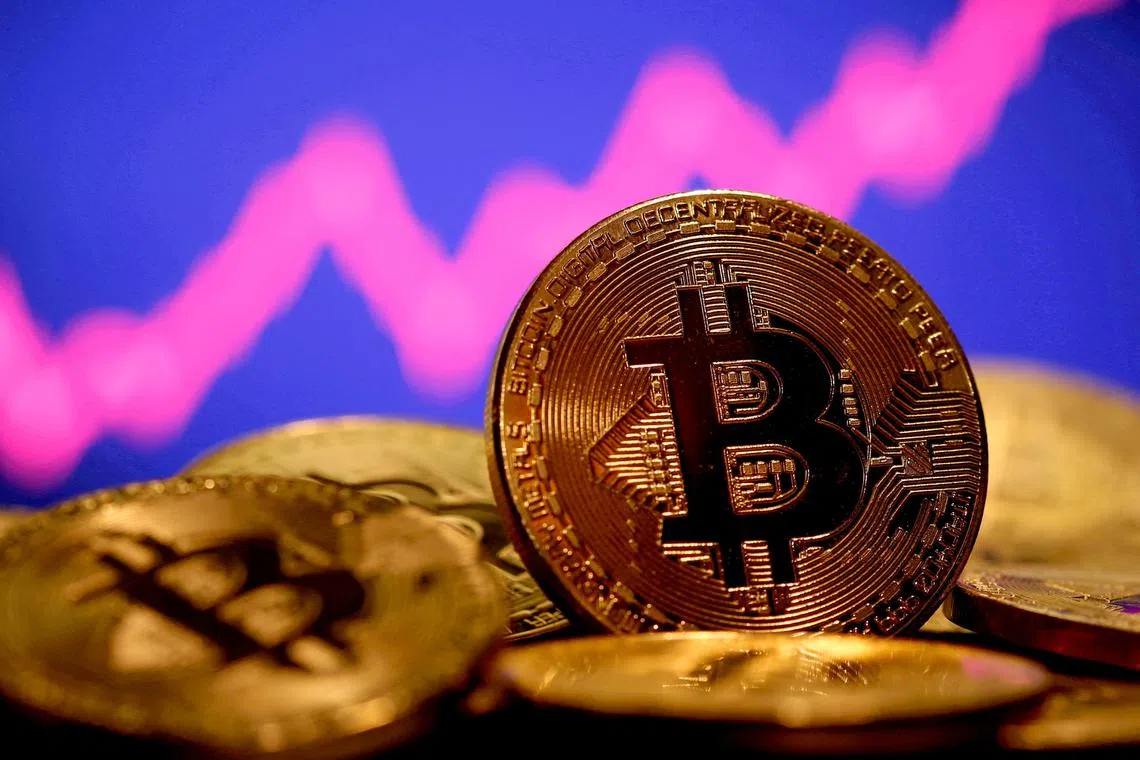Hong Kong plans to let retail investors trade larger crypto tokens like Bitcoin
Sign up now: Get ST's newsletters delivered to your inbox

Hong Kong at the end of October pivoted to a pro-crypto stance.
PHOTO: REUTERS
Follow topic:
Hong Kong – Hong Kong has outlined a plan to let retail investors trade digital tokens like Bitcoin and Ether, taking a major step towards its goal of becoming a crypto hub in a policy shift that contrasts with a crackdown in the United States.
Individual investors will be allowed to trade larger coins on exchanges licensed by the city’s Securities and Futures Commission (SFC) amid safeguards such as knowledge tests, risk profiles and reasonable limits on exposure, the regulator said in a consultation paper on Monday.
The agency did not specify which large-capitalisation tokens will be allowed for retail investors. Instead, it said the coins should be included in at least two acceptable, investible indexes from independent providers, one of which should have experience in the traditional financial sector.
The city’s current regime for crypto exchanges is a voluntary one that restricts these to clients with portfolios of at least HK$8 million (S$1.4 million). HashKey Group and BC Technology Group’s OSL bourse are the only two with permits.
The consultation period will end on March 31, and the objective is to allow retail trading in the new licensing regime for crypto exchanges due on June 1. Bitcoin and Ether, the two biggest digital assets by market value, are likely to be listed by Hong Kong platforms, an SFC spokesman said in a briefing.
Hong Kong at the end of October pivoted to a pro-crypto stance,
The consultation paper did not specify particular crypto indexes as a reference point for a taxonomy of allowable tokens. The onus will be on exchanges to monitor listed assets to ensure these qualify for trading by individual investors.
The government has already allowed exchange-traded funds investing in CME Group Bitcoin and Ether futures, and this month sold inaugural digital green bonds.
Digital asset executives are increasingly being drawn to the friendlier policy stances of places like Hong Kong, Dubai and Europe as crypto probes in the US cloud that country’s position as an industry heartland.
‘Next bull run’
Hong Kong’s pivot could also open up a conduit to mainland Chinese investment if Beijing one day loosens the ban on most things crypto on the mainland.
Mr Cameron Winklevoss, co-founder of crypto exchange Gemini, tweeted on Sunday that his “working thesis” is “the next bull run is going to start in the East”. Coinbase Global chief executive Brian Armstrong has alluded to Hong Kong as among the jurisdictions now leading in digital assets.
Mr Justin Sun said on Twitter on Monday that his crypto exchange Huobi Global is applying for a trading licence in Hong Kong and is launching a new trading venue there. The new crypto exchange, called Huobi Hong Kong, will focus on institutional investors and high-net-worth individuals, he said.
Hong Kong’s ambitions still face many obstacles, including a downturn in the virtual asset industry that has seen thousands of jobs cut. Crypto markets have only partially rebounded from 2022’s bust.
Companies may be hesitant to commit scarce investment until the contours of Hong Kong’s policy landscape become clearer. BLOOMBERG

